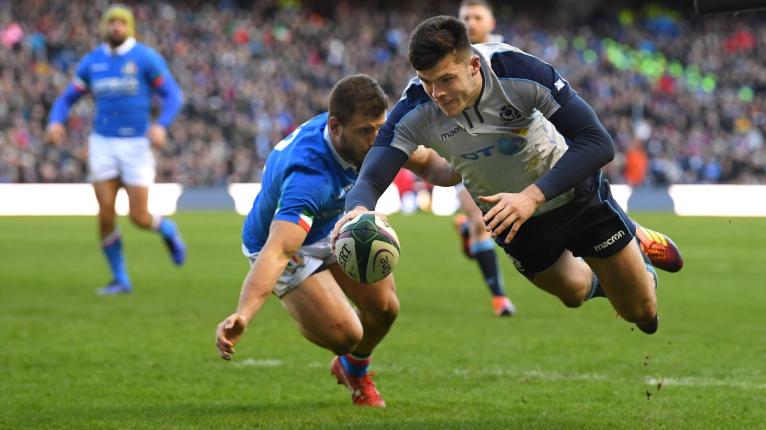Ref report cards - rating Luke Pearce's Scotland vs Italy performance

With Japan 2019 looming into view, the Six Nations offers a last opportunity for players to press their case for selection.
This is also the case for the match officials, a number of whom retain realistic ambitions of following in the footsteps of Kerry Fitzgerald, Derek Bevan, Ed Morrison, Andre Watson, Alain Rolland, Craig Joubert and Nigel Owens in taking charge of a World Cup final.
For World Rugby’s five-strong match official selection committee, including manager Joel Jutge, performances in the Northern Hemisphere’s elite competition will therefore be under close scrutiny.
And with each of this year’s 15 matches being under the control of a different referee, the contenders have only one chance to impress.
Former Birmingham Mail and Coventry Telegraph rugby correspondent Paul Smith took charge of the whistle at more than 800 matches – here is his assessment of the first weekend’s officials.
Scotland 33-20 Italy – referee: Luke Pearce (England)
Management and Communication
While lacking the gravitas of some of his more experienced colleagues, Pearce is clear and concise and has an approachable but firm manner.
However, like Wayne Barnes in the France v Wales clash, he was unable to communicate with Italy in their own language. Indeed, while Barnes attempted a few French phrases, Pearce spoke entirely in English.
This may well have played a part in Blair Kinghorn’s first try where the ball emerged on the Italian side of a ruck and Pearce advised the players “the ball is out”. Scotland reacted quicker, stole possession on the ground and eventually sent the Edinburgh winger over via Finn Russell’s kick pass.

In-match Refereeing Trends
Pearce will have been aware that Scotland’s preferred approach requires a supply of quick breakdown ball, but Italy caused few problems in this area where they only transgressed on three occasions.
The scrum caused the Englishman most of his in-match difficulties, with several of the first-half set-pieces requiring multiple resets. Pearce’s warnings included: “We’re not going to mess around like the last two scrums” then later “we’re here to play rugby not reset scrums”.
Italy were penalised four times at the scrum and Scotland twice, with the issues becoming less acute as time progressed.
Key Moments
With the assistance of the TMO, Pearce speedily ruled out Grant Gilchrist’s possible third-minute score for a double movement, while technology also correctly identified Stuart Hogg’s fingertip touchdown early in the second half.
He was also unwilling to allow Scotland close out the game at their own tempo, quickly and clearly warning them about multiple infringements in their own 22 then stepping in to deal with Simon Berghan’s maul collapse with the minimum of fuss – “last one up gets the card”.
World Cup?
Pearce is less polished and also less accurate in his decision making than some of his more experienced colleagues, but did nothing in this game to harm his prospects of being in Japan.























































